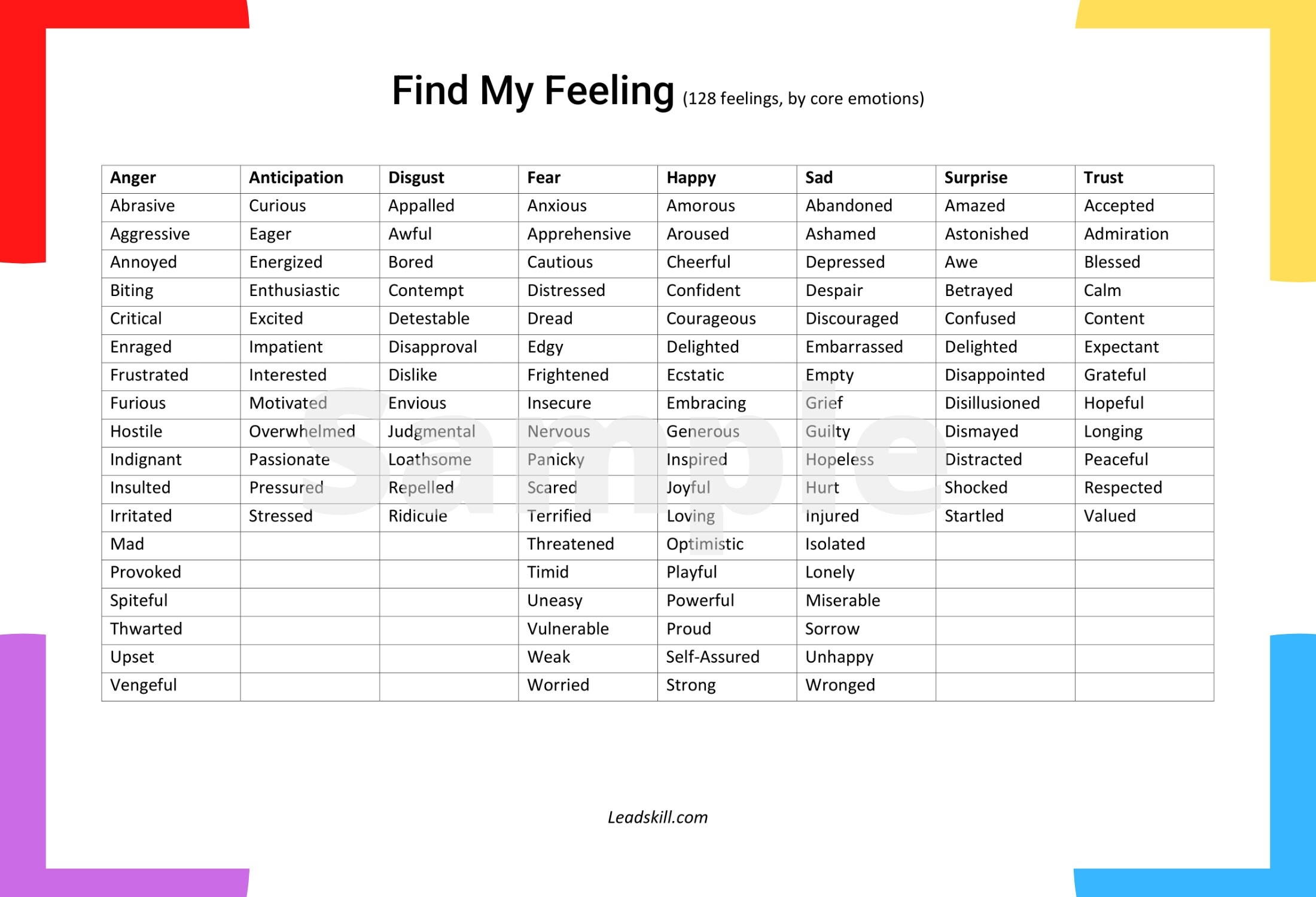Emotions and feelings play a significant role in our daily lives, influencing our thoughts, actions, and relationships with others. It is essential to have a good understanding of different emotions and feelings to effectively communicate and navigate through various situations.
Having a vocabulary chart of emotions and feelings can help individuals express themselves more clearly and accurately. It can also be a useful tool for therapists, educators, and parents to help individuals identify and manage their emotions in a healthy way.
List of Emotions and Feelings:
1. Happy
2. Sad
3. Angry
4. Excited
5. Anxious
Understanding and acknowledging our emotions is the first step in managing them effectively. By having a vocabulary chart of emotions and feelings, individuals can better articulate what they are experiencing, leading to improved self-awareness and emotional intelligence.
It is essential to recognize that emotions are a natural and normal part of being human. By expanding our vocabulary of emotions and feelings, we can better navigate the complex landscape of our inner world and communicate our needs and desires more effectively to others.
Using a vocabulary chart of emotions and feelings can also help individuals develop empathy and understanding towards others. By being able to identify and label different emotions, we can better relate to the experiences of others and offer support and validation when needed.
In conclusion, having a vocabulary chart of emotions and feelings is a valuable tool for enhancing emotional awareness, communication, and empathy. By expanding our emotional vocabulary, we can better understand ourselves and others, leading to healthier and more fulfilling relationships and overall well-being.
